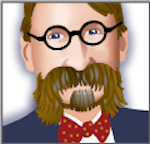CAN module for high-speed industrial control and automotive introduced by WinSystems
ARLINGTON, Texas, 18 Feb. 2013. WinSystems Inc. in Arlington, Texas, is introducing the PCM-CAN-2-ISO PC/104-compliant, dual channel, isolated Controller Area Network (CAN) module for embedded computing operation in high-speed industrial control, high-voltage renewable energy, or unpredictable automotive applications.
The CAN module has Windows and Linux software drivers available, and employs high-speed isolated data couplers and power supplies to provide 1000 volts protection between the two NXP SJA1000 CAN controllers and the network interface.
Each CAN channel can provide isolated 5 volts DC power or receive isolated 5 volts to 12 volts DC power from the interface. The 5-volt DC power supply includes overvoltage, overcurrent, and short-circuit protection.
The PCM-CAN-2-ISO is compliant with CAN specifications 2.0A (11-bit ID) and 2.0B (29-bit ID). CAN is an industry-standard, serial, asynchronous, multi-master communication protocol for connecting electronic control modules, sensors, and actuators in automotive and industrial applications.
The PCM-CAN-2-ISO supports transfer rates as fast as 1 megabit per second and has jumper selectable termination resistors so it can be used in various topology systems. WinSystems offers this board in other off-the-shelf configurations.
The PCM-CAN-2 is a dual channel, non-isolated unit. The PCM-CAN-1 is a single channel, non-isolated unit. The PCM-CAN-1-ISO is a single channel, isolated unit. Special OEM configurations are possible.
All configurations will operate over the industrial temperature range of -40 to 85 degrees Celsius.
For more information contact WinSystems online at www.winsystems.com.

John Keller | Editor
John Keller is editor-in-chief of Military & Aerospace Electronics magazine, which provides extensive coverage and analysis of enabling electronic and optoelectronic technologies in military, space, and commercial aviation applications. A member of the Military & Aerospace Electronics staff since the magazine's founding in 1989, Mr. Keller took over as chief editor in 1995.

